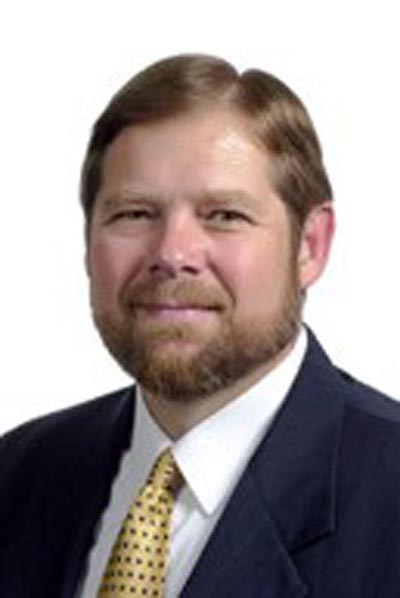
Editor’s note: For a Q&A about stem cell research click here .
CHICAGO (BP)–President Obama kept at least two campaign promises March 9 when he signed a bill authorizing the expenditure of tax-dollars for embryo-destructive stem cell research.
Many have been surprised that it has taken so long for him to follow through on the first promise, the federal funding of embryonic stem cell research. Throughout the campaign Mr. Obama made it clear that he thought the Bush policy was wrong and, were he elected, he would set it straight. On Aug. 9, 2001, President Bush instituted a policy allowing funding for embryonic stem cell research using already-existing stem cell lines, but forbidding the funding of additional destruction of embryos. Of course, the Bush policy did nothing to limit private research, which went on without hindrance from the federal government.
Mr. Obama’s executive order authorizes the National Institutes of Health to determine guidelines for funding research labs, thus effectively keeping another of his campaign promises: job creation. Pumping tax-dollars into embryo-destructive research will mean that every working American will be forced to help scientists destroy tiny members of the human species in order to obtain tissues for research that has up until now produced no drug and no therapy to help anyone. The president remarked at the White House signing that “this order is an important step in advancing the cause of science in America.” Perhaps he should have said that it was an important step in keeping American scientists in business.
“It is about letting scientists like those here today do their jobs,” he said, “free from manipulation or coercion, and listening to what they tell us, even when it’s inconvenient — especially when it’s inconvenient. It is about ensuring that scientific data is never distorted or concealed to serve a political agenda — and that we make scientific decisions based on fact, not ideology.”
That rhetoric sounds high-minded, but it is, in fact, extremely dangerous. He makes it sound like science is objective, rational and above ethical consideration. In truth, science — and especially science funding — is neither purely objective nor purely rational. And the days of letting research be done without careful attention to ethics is long gone. The Manhattan Project, the Tuskegee Syphilis Experiments and Hitler’s infamous doctors have shown that science must be informed by ethics.
Make no mistake about it: Despite the rhetoric, the Obama executive order is underwritten by a moral vision for science. It is utilitarian in the worst way. A few vulnerable members of the human race, namely human embryos, may be harmed to serve the greater good, namely a scientific research community. For this is how, Mr. Obama opined, “we will harness the power of science to achieve our goals — to preserve our environment and protect our national security; to create the jobs of the future, and live longer, healthier lives.” Except for a few dispensable human beings whose lives happen to hang in the balance in fertility clinics around the nation. Of course, by the time it is all over, it will not be so few.
The next shoe likely to drop in favor of so-called scientific integrity will be the Congressional Dickey-Wicker Amendment that prohibits federal funding of “the creation of a human embryo or embryos for research purposes; or research in which a human embryo or embryos are destroyed, discarded, or knowingly subjected to risk of injury or death.” Scientists have long claimed that if the economic doors were swung wide open for embryonic stem cell research, they would need many times more embryos than those currently being stored in fertility clinics. Creating new, “high quality” embryos will be necessary. The good news: more jobs will be created for scientists. The bad news: science becomes predatory on human embryos.
And all of this comes at a time when alternatives to embryo destructive research are reaching an all-time high. More than 70 treatments or cures are available using adult stem cells that do not require the destruction of any human embryos. More recently, research using induced pluripotent stem cells (iPSC) — reprogrammed adult body cells that have embryonic-like stem cell qualities — has shown tremendous results. In fact, these alternatives are so promising that a number of high-profile researchers have turned away from embryonic stem cell research, not because of any moral concerns, but merely because of the potential of the alternatives. To state it bluntly, embryonic stem cell research is obsolete.
If anyone should see the irony in all this it should be the nation’s first African-American president. Of all people, he should know the lessons of our history. The consequences are disastrous when one group of human beings is regarded as less than human in order to serve what other people think is the greater good. American chattel slavery certainly served the “greater good” of those plantation owners in the South.
What our forebears learned through a bloody war was that as long as any member of our race is deemed less than human — unworthy of protection against unnecessary harm — all of us are vulnerable. Following his mentor Abraham Lincoln, Mr. Obama should be the emancipator of human beings, setting them free to flourish. He should authorize funding for adopting human embryos, freeing them from their clinic freezers. He should release them from their sterile laboratory plantations. Finally, he should authorize the NIH to think about ways to reduce the number of embryos created for IVF procedures.
–30–
C. Ben Mitchell, Ph.D., is a consultant for the Southern Baptist Ethics & Religious Liberty Commission and a bioethics and contemporary culture professor at Trinity Evangelical Divinity School in suburban Chicago. He also is the co-author of “Biotechnology & the Human Good” (Georgetown University Press, 2007).











